Photographs: Jim Young/Reuters Suman Bery
US is fast forging partnership with Asian countries. To grow its international trade, India needs to engage with the US urgently.
In past columns I have stressed the need for India to engage actively with the shaping of the rules governing international trade and investment as the global economic order evolves.
Recent moves by the US in its regional trade negotiations have brought this issue back to centre stage.
While less spectacular than that of China, India's trade performance since liberalisation in 1991 has been cumulatively extremely important for faster growth and improved efficiency.
The fundamental determinants of India's trade performance lie in domestic policy; not just trade policy, but also investment, labour and regulation policies.
Despite this, international trade rules remain important to provide security of market access, most clearly for trade in goods but increasingly for trade in services. There is also a defensive reason for active engagement.
On the pretext of ensuring 'fair trade' or a 'level playing field', threats to restrict trade access are also now seen by the advanced countries as a powerful tool to influence 'behind the border' policies in only indirectly related areas.
...
Why India should worry about US' trade pacts in Asia
Image: Shanghai skyline. China, a much poorer country than the US, has risen as the world's foremost trading nation.Photographs: Reuters
The best-known examples of these are the trade-related investment measures (Trims) and trade-related intellectual property measures (Trips) negotiated as part of the Uruguay Round of trade negotiations in the early 1990s, and the increasingly strong pressures from the advanced countries to link labour and environmental standards to trade access.
The deep divisions in the international community on these issues are starkly symbolised by the deadlock on the Doha round of trade negotiations, especially since 2008.
There has been considerable mutual finger-pointing among the major players on which countries are most to blame for this deadlock, with India often being targeted as the 'spoiler' by the United States and vice versa.
The deeper cause is the rise of China, a much poorer country than the United States, as the world's foremost trading nation, and its disinterest in making concessions in areas of interest to the US over and above those it made at the time of its entry into the World Trade Organisation in 2002.
The consequence of this stalemate has been a proliferation of bilateral and regional preferential deals.
...
Why India should worry about US' trade pacts in Asia
Image: Japan's Prime Minister Shinzo Abe.Photographs: Yuya Shino/Reuters
The profound shock of the deep recession of 2007, concurrent with the election of Barack Obama in 2008, led to trade initiatives being put into cold storage by the US for the most of the president's first term.
Matters began to change in 2011, with the White House expending political capital to secure congressional ratification of bilateral trade agreements with Colombia, South Korea and Panama (negotiated by the administration of George W Bush).
Using the platform of Apec (The Asia-Pacific Economic Forum), the Obama administration also put its diplomatic weight behind efforts to expand participation by other Apec members in negotiations under the Trans-Pacific Partnership, in which the US had already enrolled.
An important recent development has been the announcement in mid-April 2013 by the Shinzo Abe government that Japan would participate formally in these negotiations, a move fiercely opposed by the country's powerful agricultural lobby.
Countries now participating in the negotiations include the four original members of the trade group (Brunei, Chile, Singapore and New Zealand) joined by the US, Japan, Australia, Vietnam, Canada, Mexico, Peru and Malaysia.
...
Why India should worry about US' trade pacts in Asia
Image: US President Barack Obama.Photographs: Jim Young/Reuters
Even though the majority of countries participating in these negotiations already have bilateral trade agreements with the US, the US has made it abundantly clear that its goal in supporting the TPP negotiation is to define a set of '21st century' trade standards in areas such as intellectual property, services, investment protection, state-owned enterprises and regulatory coherence, over and above the traditional issues of market access in goods, both manufactures and agriculture.
Despite the considerable challenge that this Asian agenda poses, the Obama administration has added to its trade dossier by formally proposing a US-EU Free Trade Area to be concluded quickly ("in one tank of gas" as has been repeatedly stated).
The barriers to trade that exist arise from differences in regulatory philosophy in such areas as safety, privacy, intellectual property and cross-border services provisioning, where, once again, the US is concerned to establish a template for cross-border rules in areas of importance to it.
...
Why India should worry about US' trade pacts in Asia
Image: Michael Froman, a key aide of President Obama.Photographs: Arnd Wiegmann/Reuters
As a mark of the importance that the Obama administration now attaches to its trade agenda, it has just named Michael Froman, a key aide of President Obama from the first term (and the president's Sherpa for the G20), as the US trade representative.
In backing the TPP, the US has created an alternative track to the economic integration project associated with the "Asean+6" countries.
This envisaged the ten Asean countries at the core of Asian integration efforts, complemented by six neighbours with whom Asean already has bilateral trade agreements: China, Japan, South Korea, India, Australia and New Zealand.
The key difference between the two tracks is the participation of the US in the TPP track, and of China in the Asean+6 track.
Each is excluded from the other track, at least for the time being, despite the countries being the two largest trading powers in the world.
While some Asian countries are common to both initiatives, several are not, and the participation by Apec is also incomplete.
...
Why India should worry about US' trade pacts in Asia
Image: Minister of Commerce and Industry Anand Sharma. India needs to urgently engage with the US.Photographs: Denis Balibouse/Reuters
It also remains to be seen whether the ambitious US agenda at the negotiating table will be supported when it comes to congressional ratification, as the White House currently does not enjoy "fast-track" authority by which the US Congress binds itself to accept or reject.
These moves by the US reflect clear impatience with the WTO as a useful forum for addressing the issues that the US considers important.
Yet the fact remains that the most dynamic component of merchandise trade has been south-south trade.
Such trade is largely governed by the disciplines and rules of the WTO and may not yet be ready for the more advanced frameworks being proposed by the US and Europe.
For its part India should see these moves by the US as a wake-up call, and take a calculated and clear-eyed decision on which of the various tracks available (WTO, Asean+6, even TPP) most closely safeguards its economic and political interests.
It should then seek to engage forcefully, rather than being faced with a series of faits accompli, which it later rues.
The writer is chief economist, Shell International.
These views are his own

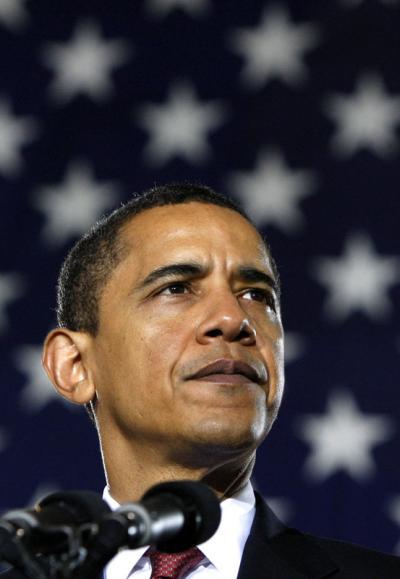
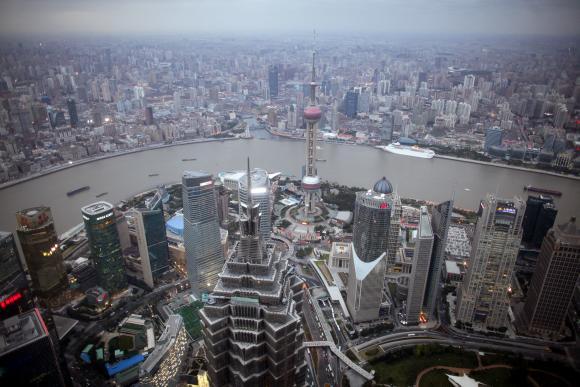
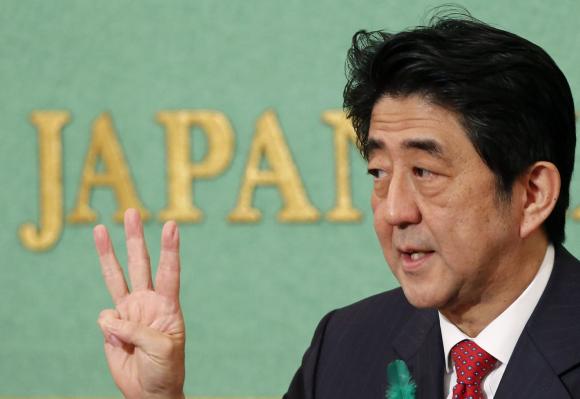
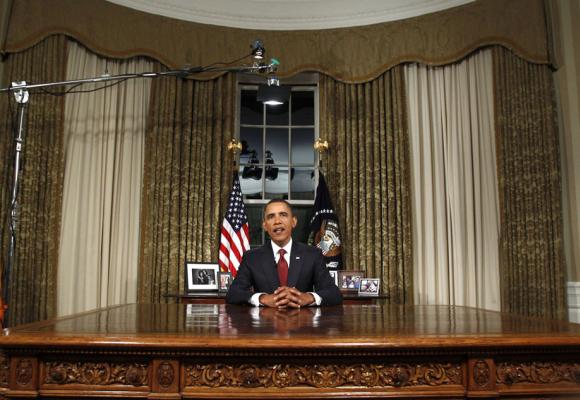
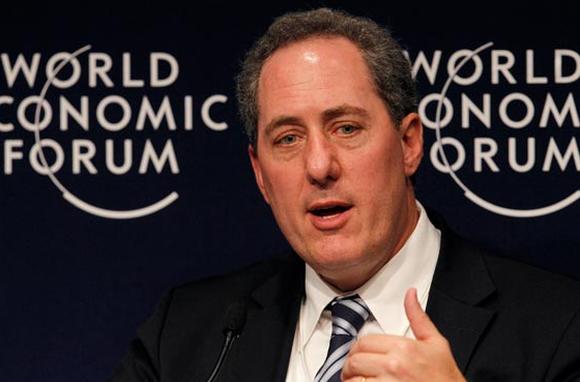
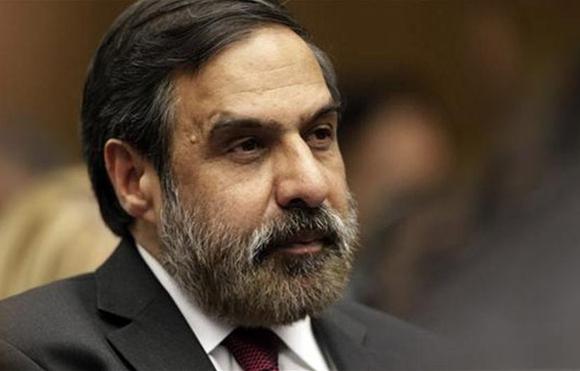

article